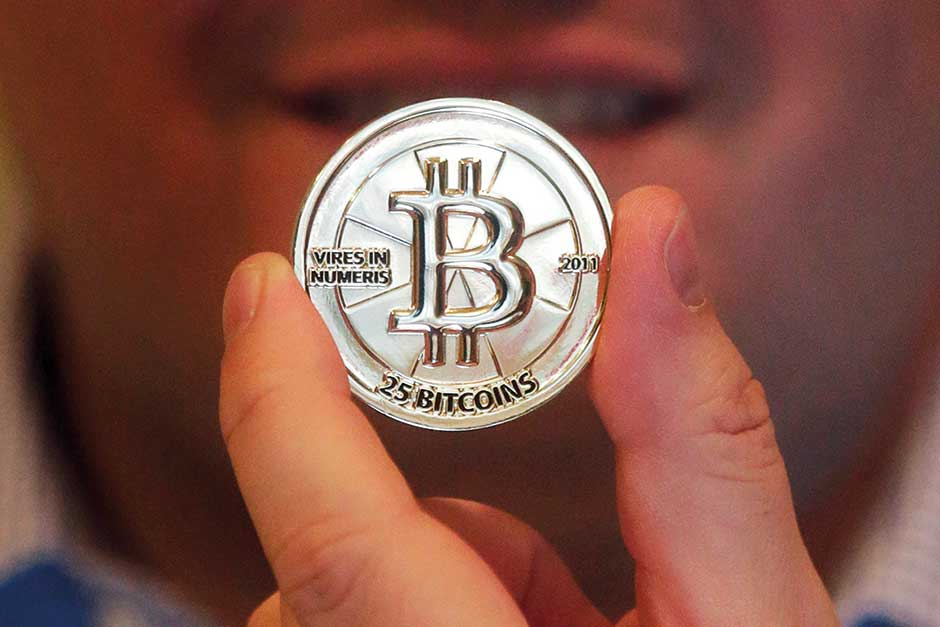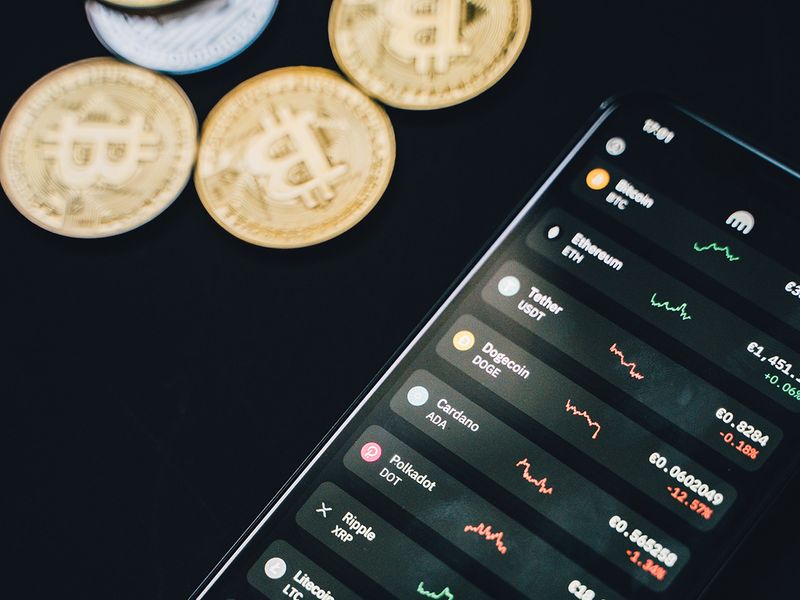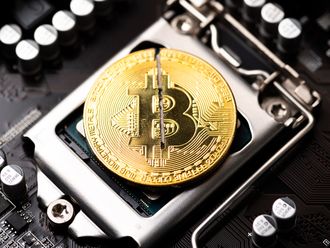
Dubai: If you have made investments or have been exploring 'cryptocurrency' as an asset class, the recent India Budget has put out some guidance paving clarity on how it will be taxed in the country.
There have been a number of theories around the digital currency in the country, especially about its legal recognition and validity – albeit some of which are still ambiguous.
Persisting ambiguity on crypto tax front
Let's try to dig deeper to understand to what degree the Indian Budget, 2022 has provided clarity that is very much needed in the potential-brimming crypto landscape in the country.
Whether you're a cryptocurrency enthusiast or newbie crypto investor, the Indian Budget has now clearly laid out a few guidelines and regulations pertaining to it.

Crypto experts now say how the latest regulatory change ended the speculation about the impending ban on cryptocurrencies in India by introducing a 30 per cent tax on transfer of such assets.
For the purpose of taxation, cryptocurrencies have now also been defined as a ‘Virtual Digital Asset’ or VDA.
VDA, not being Indian currency or any foreign currency, provides a digital representation of value which is exchanged with or without consideration. VDA also includes non-fungible tokens (NFTs).
NFTs are unique and non-interchangeable digital tokens which can be traded using cryptocurrency. NFTs exist on a block chain, allowing anyone to verify its authenticity and who owns it. Digital art, images, videos, text, music and even virtual real estate and in-game items can be bought and sold as NFTs.
Does recognition of digital assets under income tax laws mean they have got legal status? What are the grey areas? Most importantly, what do the changes mean for investors?

How is crypto tax calculated in India?
When you are to calculate tax on crypto income, only cost of acquisition is to be allowed as a deduction.
What this means is no amount related to any other crypto expenses, be it transactional cost, the interest-related cost of borrowing and so on, is allowed to be deducted.
However, any such tax is not applied on crypto income up to Rs250,000 (Dh12,288). It is only amounts that are higher than this threshold that is taxed.
What if I incur a loss on a crypto transaction?
Let’s say you incurred a loss trading in one crypto asset like Bitcoin, and make a profit in selling another one, say Ethereum.
In such a situation, can you set off the losses from Bitcoins against capital gains made on Ethereum, thereby reducing the taxable capital gains on the crypto assets? No.
If any crypto amount transfer results in a loss, such loss can't be set-off against any other income, nor shall such loss be allowed to be carried forward to subsequent tax years.
Losses that are not set off against income in the same year can generally be carried forward to the subsequent years for set off against income of those years.

What questions remain unanswered?
Analysts opine how there are still certain ambiguities around the taxation of crypto assets in India. One of the key aspects being while taxation of transfer of such an asset has been clarified, there is no clarity on taxation of activities such as development and creation of crypto in India.
Moreover, if a person were to pay for a good or service using cryptocurrency in India, Dubai-based tax experts further evaluate how it’s unclear how such a payment will be considered – as a mode of payment or as sale of cryptocurrency to another person. This leads to others queries as well.
One follow-up question being whether the purchaser of goods or the recipient of services will have to pay taxes separately on this transaction by considering it as a ‘transfer’ of the crypto asset.
Also whether or not the seller of goods or the provider of services, who uses crypto as a payment option, will have to deduct tax (TDS) while receiving the payment.
Analysts remind it’s also important to keep in mind that cryptocurrencies are mostly bought and sold in foreign currency in India.
So an increase or decrease in value of the rupee will also result in fluctuation in gain or loss. But how will any such gain or loss arising from forex fluctuation be treated tax-wise?

How are other countries worldwide taxing crypto?
The governments across the world have taken varying stances towards crypto assets. While some countries such as China have banned digital assets altogether, countries like El Salvador have declared it as a legal currency.
Countries that are in favour of crypto assets are either incorporating amendments to their existing tax codes or enacting a standalone law for addressing questions pertaining to such assets.
Singapore brought a new law into effect that legalises crypto and sets provisions to prevent illegal activity. From an income tax standpoint, businesses engaged in buying and selling digital tokens are taxed on the profit derived from trading in digital token.
However, no taxes are levied if gains accrue from disposal of digital tokens held as long-term investments. So, Singapore has given such digital assets the status of a capital asset, unlike India.
The US and Canada also see cryptocurrency as a capital asset. Any income from these assets is subjected to tax. Canada has a system in place that tracks crypto investments and ensures accurate reporting of crypto investments and resulting tax liability.
The UK levies capital gains tax or income tax on crypto gains depending upon the nature of the transactions. Likewise, the Australian government primarily considers crypto as an asset for capital gains tax purposes.
Some countries like Germany and Portugal have slightly relaxed taxation rules in place for cryptocurrencies. In Germany, cryptocurrency is deemed to be a private asset attracting an individual income tax rather than a capital gains tax only if it is sold in the year it was bought.
In Portugal, crypto income is only taxable if it accrues from professional trading activity. Further, no tax is levied on the exchange of cryptocurrency for other currency which implies that buying or selling cryptocurrencies would not be subject to capital gain taxes.

Bottom line?
While understanding the risks associated with investing in crypto is important, the selection of the exchange for dealing in cryptocurrencies is one of the key tasks an interested investor must complete before dabbling in such digital currencies.
The crypto asset market in India is worth $15 billion (Dh55 billion), noted a report by India-based CREBACO, a research, rating and intelligence firm focused on cryptocurrencies. The report further indicated that the crypto community in India may have over six million people or 0.5 per cent of the country’s population. This includes those residents and non-residents who invest money earned abroad as well.
Crypto analysts opine how India is likely to enact a standalone law to regularise digital assets by passing a nation-wide regulation. What this means is that no regulated entity will be able to deal with cryptocurrencies unless the regulation allows them to do so.
With experts evaluating how crypto may render itself as future of currencies across the globe, further clarifications would help in preventing any adverse impact on trading and investments in digital assets in the country. But one would have to wait and watch.
Nevertheless, crypto experts continue to reiterate that anybody, who wants to buy cryptocurrencies like Bitcoin, among many others, should have a five-year time horizon and have a small allocation in their portfolio. In the long-term, say, five to 10 years, the price of Bitcoin for instance may be anywhere between $100,000 (Dh367,000) and $500,000 (Dh1.8 million) as the supply is low.
So be mindful that with potentially massive gains, comes incredibly higher risks.












